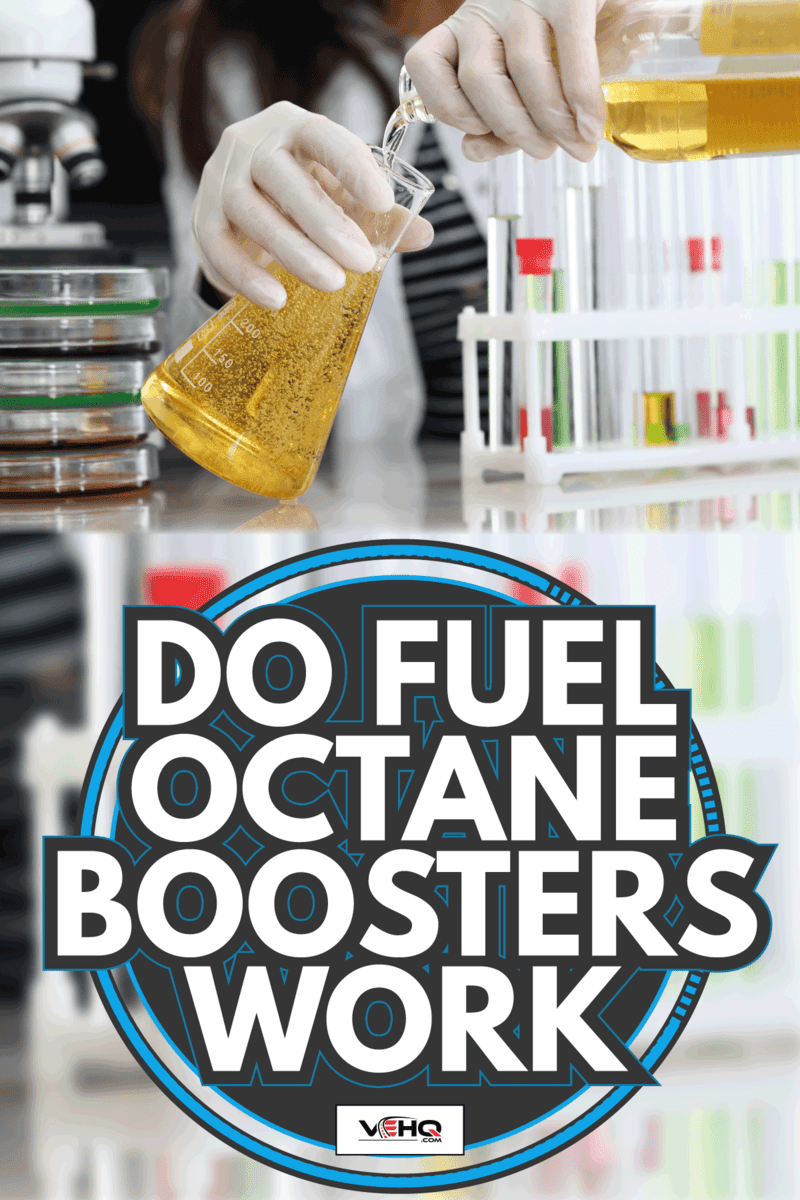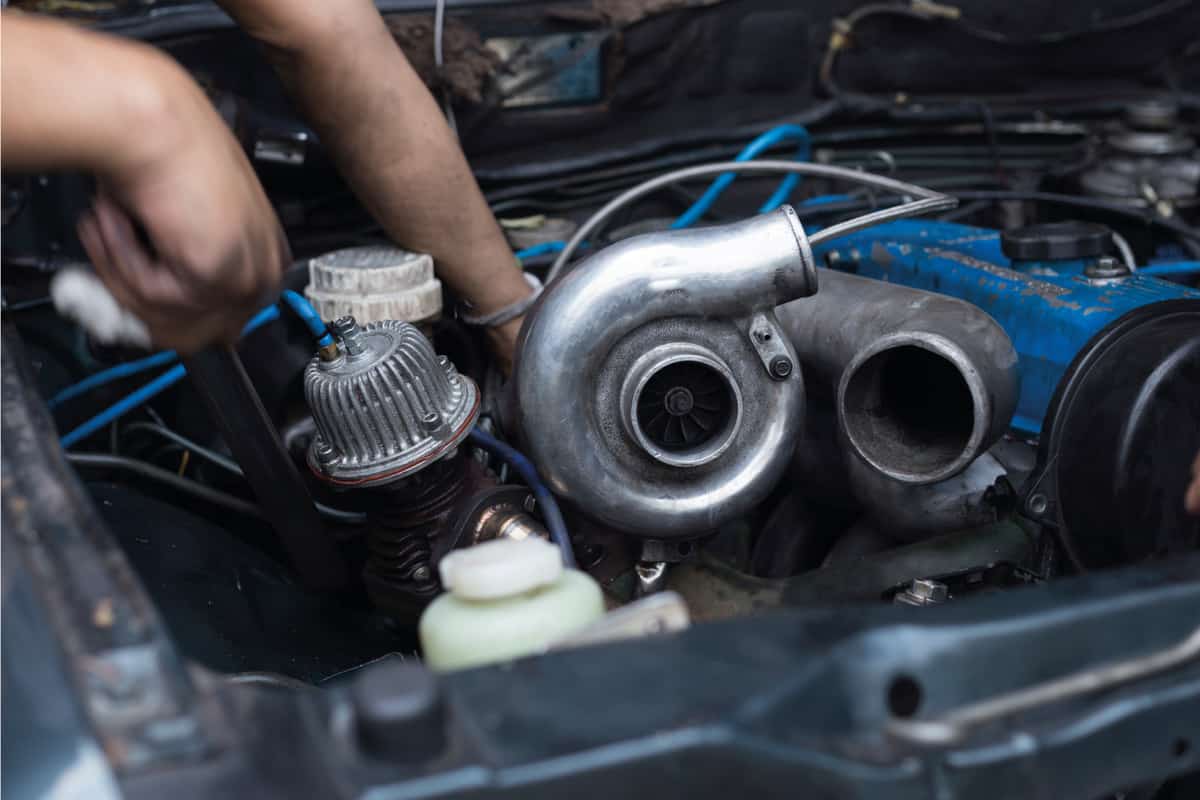It's no secret that the more horsepower you add to your vehicle, the higher the chance there can be parts that break. You may have heard of octane booster products that can help avoid that problem. However, do they work? We have taken the time to research this question on your behalf in this article.
When it comes to protecting your engine from knocking or pinging, octane boosters can help. They will increase the octane rating in your vehicle's engine, helping suppress combustion. In addition, octane boosters can significantly benefit your vehicle by protecting engines equipped with turbochargers or superchargers.
Octane boosters can help your engine only if you are vehicle requires it. So when should you use an octane booster? In this article, we will take a closer look at octane boosters and when to use them. In addition, we will discuss the pros and cons of using octane boosters, so keep reading!

Do Fuel Octane Boosters Work?
As always, it depends on the fuel octane booster and how you use it. However, octane boosters can be an effective way to raise your vehicle's octane rating, which will protect your engine from knocking or pinging.
For vehicles with high horsepower engines tuned with a turbocharger or supercharger, octane boosters will help protect the engine.
Octane boosters work by raising the concentration of gasoline that is available to burn in your vehicle's engine. The goal of octane boosters is to raise the octane rating available to be burned in an engine without knocking or pinging.
Octane is a term used when referring to gasoline quality and determining its effectiveness when being burned in an internal combustion engine.
The octane rating measures how much the gasoline in your engine can resist knocking or pinging when being burned in an internal combustion engine.
High-performance Parts Benefit
For example, if you own a Subaru WRX STI or a Mitsubishi Lancer Evolution with added performance parts, you might need an octane booster. Performance parts like a bigger turbo, intake manifold, fuel injectors, headers, and complete batteries exhaust system can benefit.
This is due to the amount of compression hitting the combustion chamber, which can cause detonation in the engine. If you are wondering, detonation in an engine chamber is not a good thing; it could cause pistons to burn up.
Avoid Knocking/Pinging
Some modern vehicles with high-performance engines can be susceptible to knock/pinging. When driving a high-performance vehicle, it can cause the gasoline to knock or ping.
Higher octane rating fuels are more resilient against knocking/pinging, which is why it's essential to use an octane booster when your engine requires one.
Ensure Compatibility with Your Engine
Keep in mind that fuel octane boosters will not work on all vehicles. This is because vehicle manufacturers can change the octane requirements for their engines depending on the vehicle's year, make, and model.
Therefore, when purchasing a fuel octane booster, you must ensure it's compatible with your engine. Otherwise, it won't provide any benefit.

Is it cheaper to use an octane booster instead of premium gas?
Fuel octane boosters can be costly, mainly when used frequently. The overall cost of using fuel octane boosters will depend on the vehicle type and size of the engine.
For example, owning a Nissan GTR or Mitsubishi Lancer Evolution could require an octane booster once every 100 miles. So this would increase the overall cost of filling up your vehicle with premium gasoline.
Added Cost Per Fuel Re-fill
Octane boosters need to be added every time you fill up your vehicle with fuel. So not only are you having to pay for a full tank of fuel, but you also have to pay for a whole bottle of octane booster every single time. That will add up quickly.
If you can, look around your city or town for a gas station with 91 or 93 octane fuel. Unless you are pushing some serious power, then this should be sufficient to get you by.
Octane boosters can be a great tool to add octane to the gasoline in your engine. However, when using an octane booster, it's essential to follow the product label and remember that how often you use one depends on your vehicle's size and power.

When should I use an octane booster?
Octane booster is best used if you experience knocking or pinging when driving your performance vehicle. When you are experiencing knocking or pinging, you will need to fill up your vehicle with the appropriate octane fuel.
Adding the octane boost coinciding with premium fuel will raise the octane levels, which will help protect the engine from detonation.
If that doesn't work, then it's best to contact a performance shop for help. Your vehicle might need a tune to help the computer understand the fuel and air levels. If your vehicle is stock and has a turbo or supercharger, it will likely run just fine on premium fuel.
It's when you start adding more horsepower with aftermarket performance parts, then consider octane booster. In addition, when you start having your car tuned on a dyno, you will be able to know when it's time to start using an octane booster.
If your performance shop says you should run an octane booster, then this is how you add it:
- First, get your fuel tank to as empty as you can.
- Then add the whole bottle of octane booster to the fuel tank.
- Lastly, fill your vehicle utterly full of fuel.
You will need to add the octane booster every time you fill up the vehicle with gas or diesel.

Can octane booster harm your engine?
Using an octane booster isn't going to harm your engine. As mentioned above, the point of an octane booster is to protect the engine from detonation. However, octane boosters are only for certain types of vehicles.
For example, putting an octane booster in a Toyota Camry will restrict the engine's performance more than it will help it. It's not going to cause damage, but the engine won't perform how it should.
Likewise, too rich fuel in low horsepower vehicles will lower performance because fuel will burn too slowly. Unless specified by the dealer or a performance shop, most vehicles will run at their best when using regular fuel.
In addition, octane boosters will help lower the emissions in the engine. Unfortunately, the more carbon build-up in the engine, the more likely the engine can endure damages.

Will octane booster make my car faster?
Octane booster alone will not make any car faster. There is a misconception that octane boosters provide more horsepower, but this isn't the case. However, it will help you increase horsepower with new performance parts without the risk of blowing up the engine.
Octane boosters are intended for performance purposes, but only a performance engine will have the high horsepower. It's used to make sure you are able to drive on fuel with lower levels of octane without detonating your engine.
An octane booster is needed to protect your engine from detonation if you have performance parts installed on your vehicle.
For example, if you use a 91 octane fuel, an octane booster can make the engine think it runs on a 95 octane fuel. This will help slow the burning of the fuel and help avoid knocking or pinging.
Boost Performance
If you are looking for more performance, the best thing to do is get an engine tuneup, have your air filter replaced, get new spark plugs and install a high flow intake system. These parts will boost the power of your engine while still protecting it from harmful detonation.
In addition, the most effective way to increase horsepower is by installing a bigger turbo or supercharger. The boost will enable you to have more performance without worrying about detonation.
It's also going to be cheaper than buying an octane booster every time you fill up your tank with gas or diesel.
Finally, most people will not need an octane booster unless they are professional racing or building a car not made for street use. With that in mind, in most states, octane boosters are not street legal and should not be used to race on public roads.
Final Thoughts
Overall, octane boosters can be a great way to protect a high-powered engine from damages. However, they are only suitable for engines with superchargers or turbochargers.
If you are considering using an octane booster, do your research first on your specific vehicle. You can use an octane booster on the wrong vehicle or use too much, and it will bring down the performance of your vehicle's engine more than it will help it.
If you enjoyed this article, you might also like:
Does A Ford Mustang Ecoboost Have Turbo?
How Much Does An ECU Tune Typically Cost?
Driving Gloves: Here's Why You Need A Pair [Inc. Recommendations]
Have you used octane boosters in your performance car? What brand do you use? Leave us a comment below!
